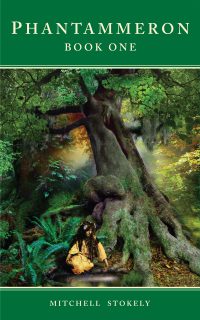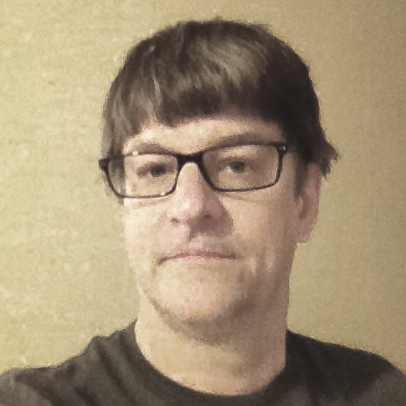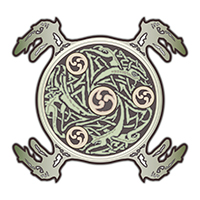One of the wonderful things you get to explore when you write fantasy fiction as mythopoeia is the concept of the Creator or “divine will” in your books. Writing my own mythopoeia, the Phantammeron, taught me so much about the idea of God and what that means to me theologically, not just in fabricating the divine being of my worlds for fantasy, but in exploring through writing my views of my faith as a Christian.

As I’ve mentioned many times in my YouTube lectures, you don’t have to believe in God or be religious to write about such things. Being a Christian has helped me, however, start with a divine premise that is yet contradicted at times by the questions posed by my fiction. It’s that “healthy” questioning of faith and life and being human that everyone must have everyday of their lives. For to blindly accept a God or a belief in the divine to me feels dead. To strive for truth through questioning, continual education, and scientific learning is an essential part of being Human as well as a Christian. This too was a part of the secular faith my Grandfather expressed to me before his passing. He was wise, for he was a Church educator and elder for 70+ years in the church and university where he taught.
What is God?
There have been many types of Gods or divine figures in fiction. But some remain very transcendental. Tolkien’s Illuvatar in his 1977 Silmarillion first comes to mind. That strong all-knowing figure formed the basis for his fantasy world. But it also allowed him to express his faith, yet question it. And that idea that through art one could express those feelings about God hit me profoundly when I first read his son’s notes about his father’s creative conceptions for his work.
In my early notes for the Phantammeron I had conceived of my own Creator, the Essence Eternal, as a similar being; a strong omnipotent father who seemed to know in his heart the sad but hopeful fate of the world he created. But unlike Tolkien’s conception, my own Creator himself would have a birth and have parents, arriving from a prior world long ago destroyed (That strange tale is revealed about midway through the book in Ama’s tale to Ana in the garden in Phantammeron Book One).
To conceive of Mythopoeia isn’t just to dream up names of gods and goddesses and love interests and power plays in drama, its to construct the metaphysical meaning for their existence and purpose in story. The more I thought upon my Creation Story in Phantammeron Book One and what it needed to say as far as God the more profound that story became to me.
Why would a Creator make the Universe? What would be the purpose of it all? Where did the Creator come from and what mysteries lie beyond even itself? All these sublime thoughts haunted me for months as I worked on the initial chapters to my first book. Until I answered them and asked myself what God in this world truly meant, I could not go on writing.
In the Phantammeron I first conceived of embracing the idea of the Hindu or East Asian concept of “Eternal Recurrence”. This is the anti-Christian idea that heaven is not our end-point upon death, but that all things recycle over and over in an endless play of life, death, and rebirth. The wisdom that comes from accepting these cycles is essential to finding joy in this world and the tragic play we are all trapped in, I felt.
That idea formed the basis for the Creator, the Essence Eternal, in my first book. This being was both a Great Father and Creator of the world, would be it’s alpha and omega. But He had also come from a prior destroyed world with a new purpose. That ideal then allowed me to enrich the meaning of the Phantammeron world my readers would experience, not as a Tolkien concept of just a single divine idea, but one tied to millions of worlds prior to this one which had all been tragically destroyed by their children.
The Creator was thus more than a divine father that knows and perceives all of history and maps it out to his children like Tolkien’s Illuvitar, but one that gave up his own essence……gave up the Creative Flame to his children so they could freely make the world as their creative passions should drive them. That then gave rise to the idea of the Creator be a fleeting form, one that actually perishes in Chapter One of the book. He perishes or leaves the world, placing its creative destiny in his children who give birth to more children. And so I’m exploring the connection of all living things as coming from him, birthed from him, and as an incarnation or representation of him.
And so the tragedy of the Phantammeron story would be wrapped up in these ideas, transient Gods that do not last yet are reborn in others. He would be both an accepted reflection of his will and grace, but also a reflection of the tragic nature of his children’s choices in the book.
I say in the book concerning his children, “they would know of each other through their forms and works”, meaning, we as humans see the divine in each other through our flesh and inner talents and things we too create like our Creator. It’s a reflection of Mankind’s own creative powers as valuable and divine, a personal reflection on my view of creative people as divine.
Then I say “but only he would know them through their spirits” which is a profound reflection on the idea that hidden from Mankind there is a spirit in each of us we can’t see but that must be tied to God and which only he can grasp or reflect upon. In the Phantammeron that concept fit with the idea of all things made of the Spirit Divine, which is a “parent-spirit” or essence that lives beyond even the Creator in all things. And though he planted that spirit in all his children and so guides them in that way in the book, it’s also a way of saying we are all of his “one spirit” and come from it as does God – like the Holy Ghost in Christian faith.
That strange essence is what drives the hidden connections of all beings in the Phantammeron, yet holds the mystery of why the Universe and even the Creator was made in the books.
Last thing on writing divine beings…in my own Creator Cosmology I also am rebelling against Tolkien’s concept of Illuvatar as Creator in that I reveal the Creator or Essence Eternal as having parents in the prior world. Ama’s story reveals that, if you read my Phantammeron Book One novel carefully. Later in the book the Nothingness tells Ana that he is the true father of the Essence Eternal, the Creator, and says to her, “my dark seed is in you all”.
That’s a very odd yet powerful concept in my books that transcends the Christian view of God as pure and divine. In my novels there are many conflicting views of the divine, and for a reason. As Christians we believe in evil as a result of choices and freedom. God has given us to come to him through our own will. But in the Phantammeron there is a larger purpose and fate, one almost beyond the reach of God or the Essence Eternal. And yet He set it all in motion for some strange purpose yet to be revealed.
I also embrace that freedom in the Phantammeron as all my characters have the same choices to do good or evil. And yet by the Nothingness revealing his power and influence in the fates of the main protagonists, the reader senses some darker meaning or purpose is at play. That will come in later in the mystery of the Sacred Pool and its purpose throughout the later books.
By the Nothingness telling us he fathered the father of the world he is saying evil and good are in us all by default; that our hearts can turn away from our darker half or embrace it, and yet strangely doomed by it. And that idea comes from the Postmodern America I grew up in that the generations that created it 50 years ago spawned…..the anti-Christian view that you don’t need religion, you only need your own selfish desires fulfilled through divorce, sex, drugs, and rock and roll which became the new paradigm in America after 1965….an idea I wholly reject! And so I reflect upon the culture I was raised in yet embrace the goodness of my Grandfather’s Christian view of the older ideas that Man is basically good and must accept and fight against evil in his life and in others and win.
And so, in a strange way, I have come full circle, embracing the fundamental faith of Christian writers like Tolkien and his views of a good God, as well.
And so all this formed the “conflicted” and yet rich contrasting idea of God, Creation, and of the Creator in the Phantammeron novels. The divine to me in my fantasy cosmology is both a good omnipotent loving father-figure, yet one possessed or rather trapped in the darkness that he gave to his own doomed and violent children.
And that conflict will get explored and expressed in more depth in the tragic tale of the Sacred Waters of the Pool of Eternity that flows as the main theme in all the books.
– the Author



